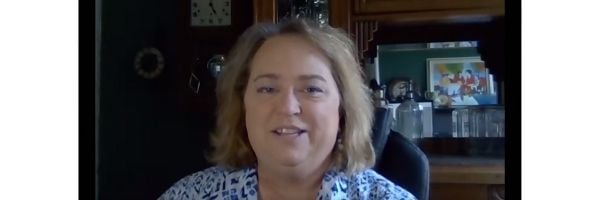Becoming an Ally with Jennifer A. Mansfield
Holland & Knight's Diversity Council and Asian/Pacific Islander (API) Affinity Group are proud to celebrate Asian/Pacific American Heritage Month and pay tribute to the generations of Asians and Pacific Islanders who have enriched America's history and continue to play a role in its future success. This year, we took time to reflect on how we could better support our API colleagues, sitting down with attorneys and staff to have important conversations about racial justice and allyship. Throughout the coming weeks, we will be presenting a video series showcasing some of these conversations. We hope that the stories conveyed in these videos help advance dialogue around API Heritage Month as well as lead to further discussions of how we can be better allies to our API friends, family and colleagues.
The sixth episode in this series features Jennifer Mansfield, a commercial litigation partner in our Jacksonville office. She recounts the shock of being told as a high schooler that she teased a friend of Chinese descent when they were in kindergarten, saying it was devastating to hear because she knew "that wasn't me and that wasn't my belief system." Jennifer explains that her story provides a good example of how prejudices can become so ingrained in society that they continue to be perpetuated, even unintentionally.
View more videos in this series.Jennifer Mansfield: I went to kindergarten and first grade in Melbourne Beach in elementary school, and one of my playmates was Inga Young of Chinese descent. I really like Inga. I still like Inga. We're Facebook friends post-high school graduation. My family moved away after first grade and then moved back into the area in time for high school. So when I got to high school and I saw Inga again, I was all happy and reintroduced myself to her. And her reaction was happy as well, but then very matter of factly said, "Oh, you're the one who teased me in kindergarten." And it hit me between the eyes because I was in high school at this point and much better formed as far as proper behavior and my personal morals. And I had no idea that I had done something to bully her or tease her in any fashion. And in high school then, to have a person that I liked very matter of factly point out that I had hurt her in the past was devastating at the time, because by that point, I knew that that wasn't me and that wasn't my belief system.

My experience and the reason I want to tell this story is because I believe that if someone, an adult, had supervised and pointed out that that sort of name-calling was inappropriate, then it might have prevented me from mimicking the other kids on the playground. Or if it was pointed out that I had hurt my friend Inga, I would have apologized and I would have stopped it. So for me, that personal experience of being the perpetrator, unintended, of hurtful stereotypes and teasing has had a profound effect because I'm 52 now and I still remember this. The reason I wanted to share this story is because it's a good example, actually, of how society and the prejudices that are in society get baked in and then get perpetuated, even unintentionally, by people. And that the importance of the awareness and teaching people to be better people, to try to combat the resistance that some people might have to say, no, I'm a good person, I don't purposely discriminate or I don't discriminate at all, I don't believe in that. And the fact that you don't need to believe it in order to perpetuate something that's so ingrained in our society.
